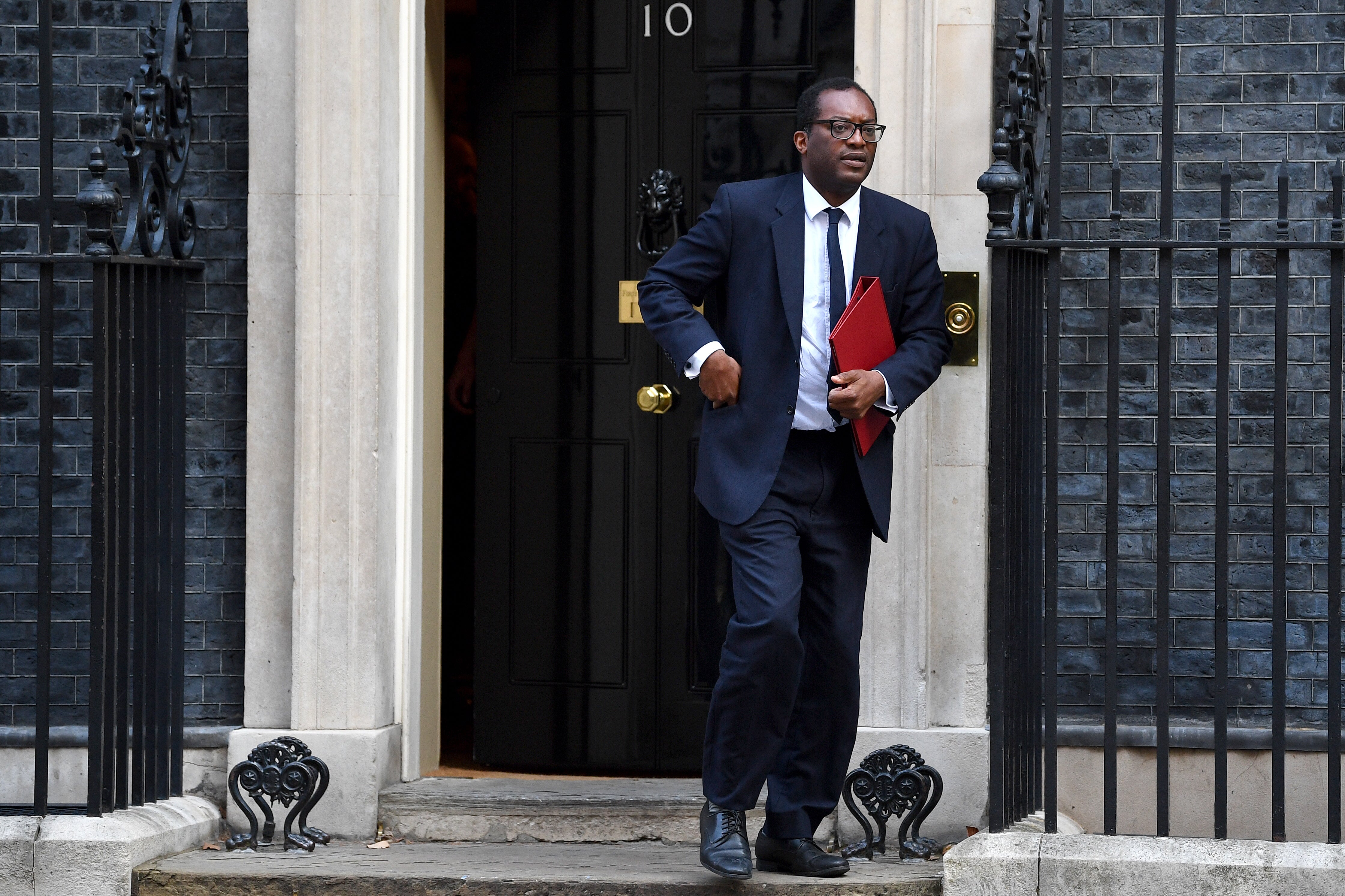Kwarteng says lights won’t go out as Britain’s energy crisis flickers and sparks into life
Consumers are going to get burned thanks to the government’s lack of foresight and the way the Conservatives handled energy privatisation, says James Moore


“The lights won’t go out,” said business secretary Kwasi Kwarteng in a statement to the House of Commons, and if that isn’t a signal to put in a bulk order of candles from Amazon before going out to gather firewood I don’t know what is.
Kwarteng was giving an update on the energy crisis, during which time he managed to get told off by the speaker for taking too long without actually saying much of consequence in response to a rapidly developing situation for which the technical term is “godawful mess”.
He’s clearly going places in this government.
“Protecting consumers is our primary focus,” he declared, which is what he’d like the public to believe even though it isn’t true.
I covered why that is in this column yesterday, but to recap, OfGem’s energy price cap applies only to standard rate tariffs, and prevents things from getting really nasty for the poorest consumers – for all consumers in fact.
But the cap is still going up by more than 10 per cent, just as £20 a week is coming out of the pockets of people on universal credit. So for some people the lights may very well go out, because while there are usually plenty of fixed deals offering cheaper prices, these have evaporated as wholesale gas prices have shot up.
Britain’s renewable energy industry has been growing at a rapid pace, but the country still relies on burning gas, and is still exposed when prices go up faster than one of Elon Musk’s rockets.
The other problem with the cap is that these prices have got so high that, unless their traders have played the futures market like champions, energy providers are losing money like a party of drunken rich kids on their first visit to a casino.
It’s particularly tough for the smaller providers, a number of whom wrote to the government to plead for help.
Some of these businesses don’t have sustainable business models and it’s not unusual for a bunch of them to exit the market at this time of year.
But the current conditions are extreme. Faced with a cap that makes their businesses uneconomic, some perfectly good companies are going to get kicked out along with the dross.
Kwarteng said the cap wasn’t going anywhere, which would appear to put paid to speculation that OfGem could introduce an unscheduled increase in the middle of winter in response to the wholesale market.
He also made clear that he wouldn’t be bailing these companies out. The government has done that with unpopular businesses in the past – you can start with the banks – but the politics of doing so are messy indeed.
What he failed to acknowledge is that a government with a little more foresight could have mitigated this situation by having overseen the creation of greater gas storage capacity, as some of Britain’s neighbours, with a sharper eye on their energy security, have done.
We ultimately need to stop burning gas, and all fossil fuels, because it’s unsustainable as part of a very necessary net-zero strategy. But at the current juncture, it would surely have helped to have a decent reserve of the stuff bought at more sensible prices.
As things stand, it seems all but certain that things are going to get worse, and messier, before they get much better.
Companies going bust means consumers will get stuck with new suppliers they mightn’t have otherwise chosen, perhaps with pricier tariffs.
Those with solar panels on their roofs have cause to feel really smug now. The economics of having them are starting to look better and better. At the same time, the Conservative Party’s addiction to privatisation, and the way it handled the energy part of that, looks worse and worse.
The end result of this will ultimately be fewer suppliers, and fewer good deals, even if the wholesale gas price spike ultimately proves to be temporary, as the government claims it will.
But nobody can say with any real certainty that it will be temporary, and even if they could, you can bet that there’ll be another crisis before too long to expose the culture of “delay, dither and failure” that seems to be part of the government’s DNA.
That was how Ed Miliband, Kwarteng’s shadow, described it. His summation of the situation looks disturbingly accurate.




Join our commenting forum
Join thought-provoking conversations, follow other Independent readers and see their replies
Comments